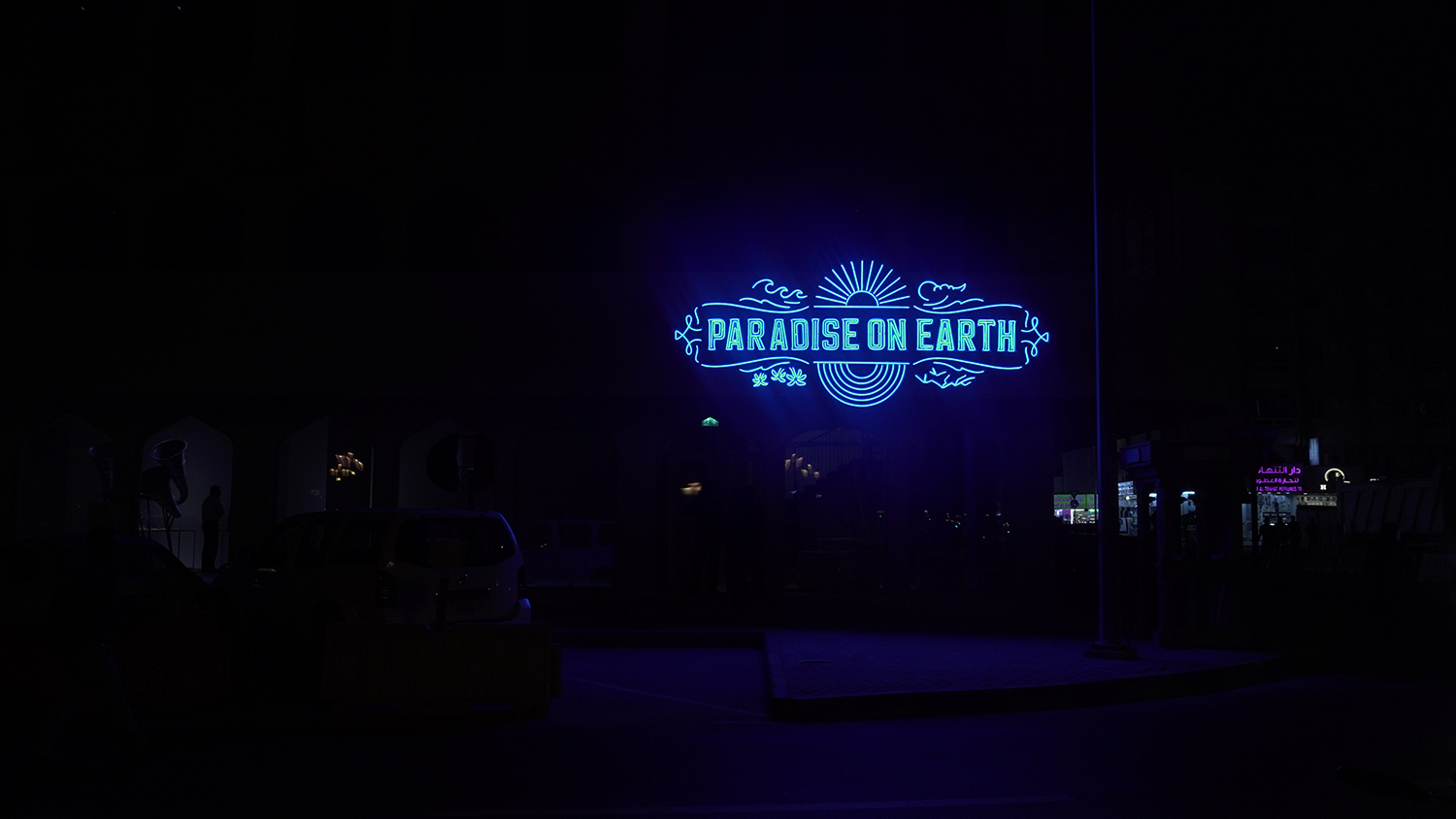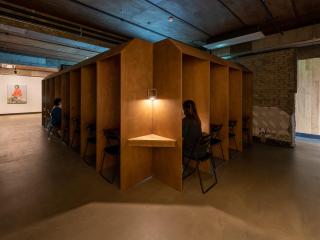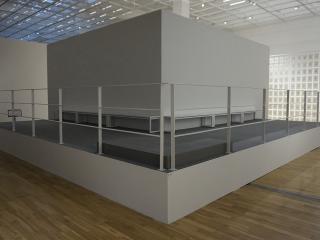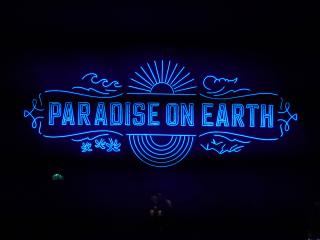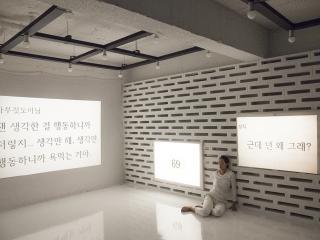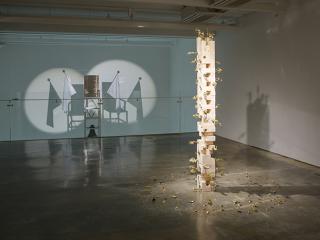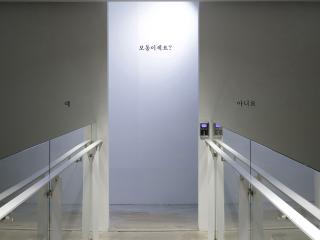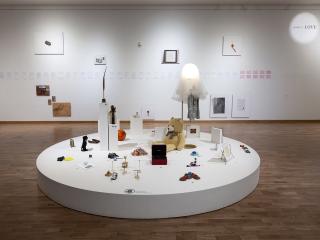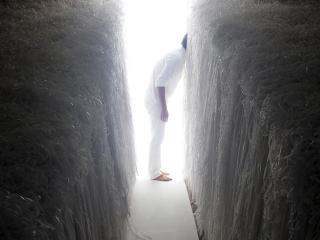The Outside Story
Against Us 우리가 아닌 우리 (2017~)
2009년 부터 진행중인 Project '대화'의 4번째 주제는 '우리가 모르는 우리', 공동체의 이야기이다. 지난 프로젝트들에서 '꿈', '사랑', '보통'과 같이 평범함 사람들이 살아가면서 뜻하지 않게 잃어버리는 것(상실)과 잊어버리게 된 것(망각)에 대해서 말하며 삶에서 의미 있는 것들에 대해 성찰하게 하는 프로젝트들이 '보통'을 거쳐 자연스럽게 4번째 프로젝트 '우리가 모르는 우리'(2019~)로 이어진다.
시리즈 '우리가 아닌 우리'는 우리가 모르는 '우리' 밖의 이야기이다. 즉 우리라고 말하지만, 결코 우리라고 여기지 않는 저들..
과연 우리는 저들과 함께 살 수 있을까.
The fourth theme of Project Dialogue, which has been ongoing since 2009, is Our Unknown Country, a story about community. Previous projects have explored themes such as dreams, love, and emotions, prompting reflection on the meaningful aspects of life by addressing the unintended losses and forgotten moments that ordinary people experience in their daily lives.
These projects naturally led to the fourth installment, Our Unknown Country(2019–), through the concept of “Botong” (normality).
The series Against Us tells the stories of those outside of “us”—people we call “us” but never truly consider as part of “us.”
Can we truly live together with them?
* 'The Outside Story' is a spin-off concept project of Vol 4, 'Our Unknown Country.'
The Other Side of Hope
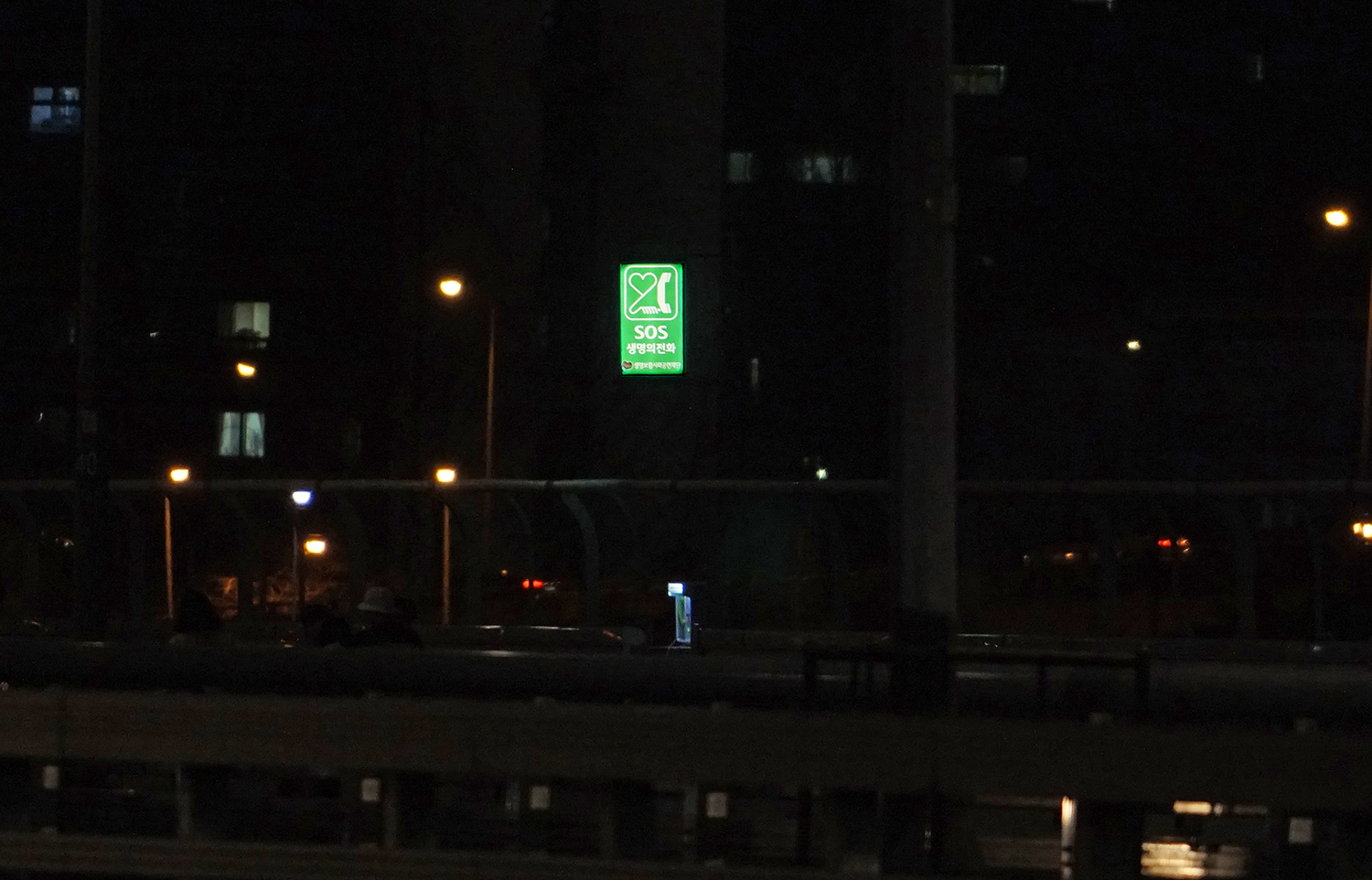
The Other Side of Hope, 2017, single HD video 11:00 (Text: Hélène Cixous 'Lethe', Narration: Oh Euitack)
대한민국에서 가장 간절한 바램을 접할 수 있는 곳이 어디일까?
한 해 평균 200여명의 투신자들이 찾아온다는 마포대교..
생명의 다리가 되고 싶었으나 정작 죽음의 다리가 돼버린 이 불운한 다리는 지금도 오늘에 절망한 수많은 사람들을 맞이하고 있다.
그러나 나는 이곳에서 지난 5년간의 ‘버린 꿈’ 설문조사에서 그토록 만나고 싶었던 희망을 간절하게 바라는 이들을 발견 할 수 있었다.
그들이 다리에 남겨둔 심정(心情)이 발견된 지점에서 강물을 보노라면 죽음을 생각하며 사람들은 마음 깊숙이 묻어둔 삶에 대한 희망들을 찾는 모양이다.
E. 시오랑(Cioran)의 말처럼 현실에 의해 죽은 자들이 희망이 사라진 절망의 끝에서 역설적으로 희망을 찾는 이곳에서 나는 오래전 포기해 버린 나의 꿈을 떠올리려 한다.
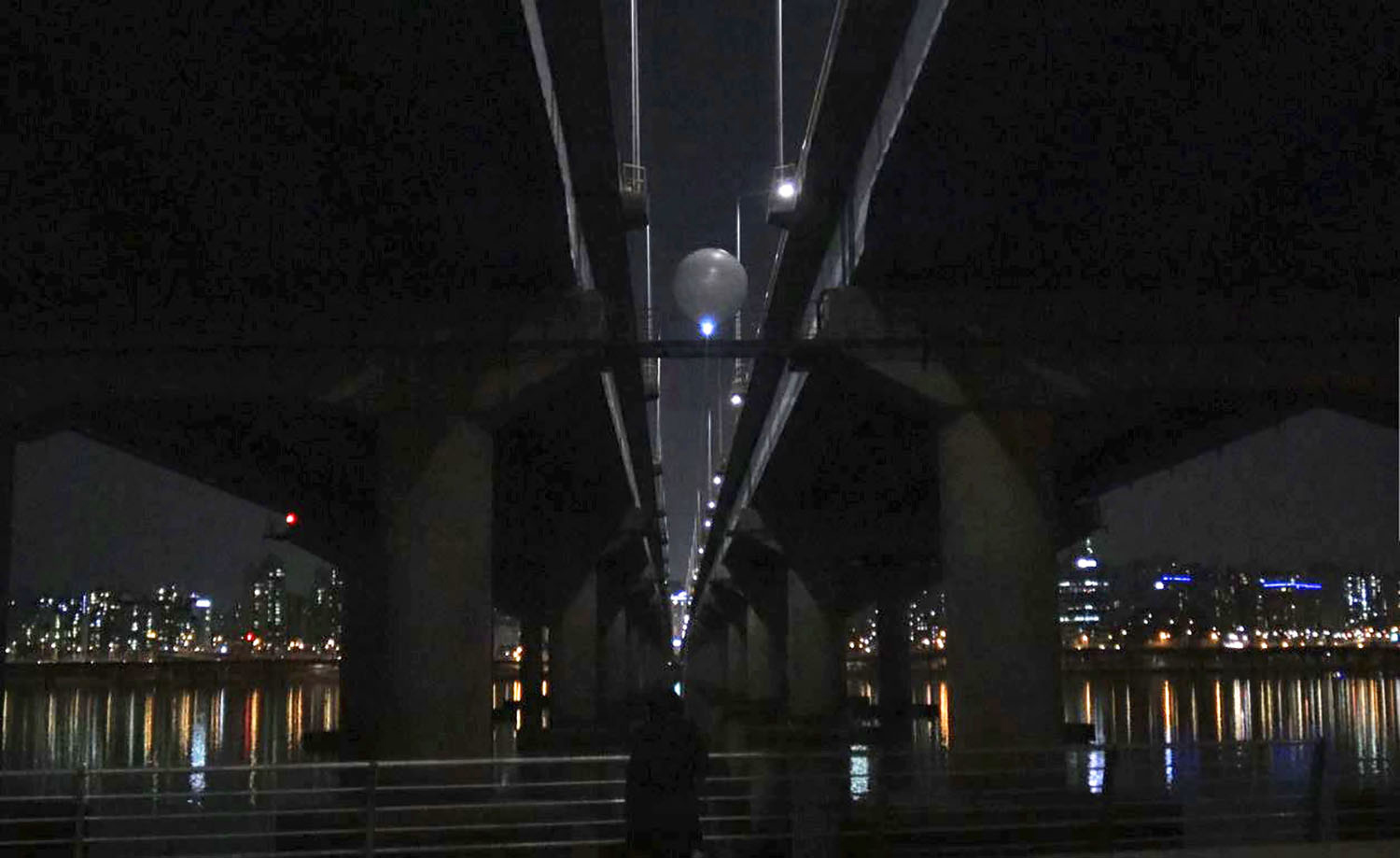
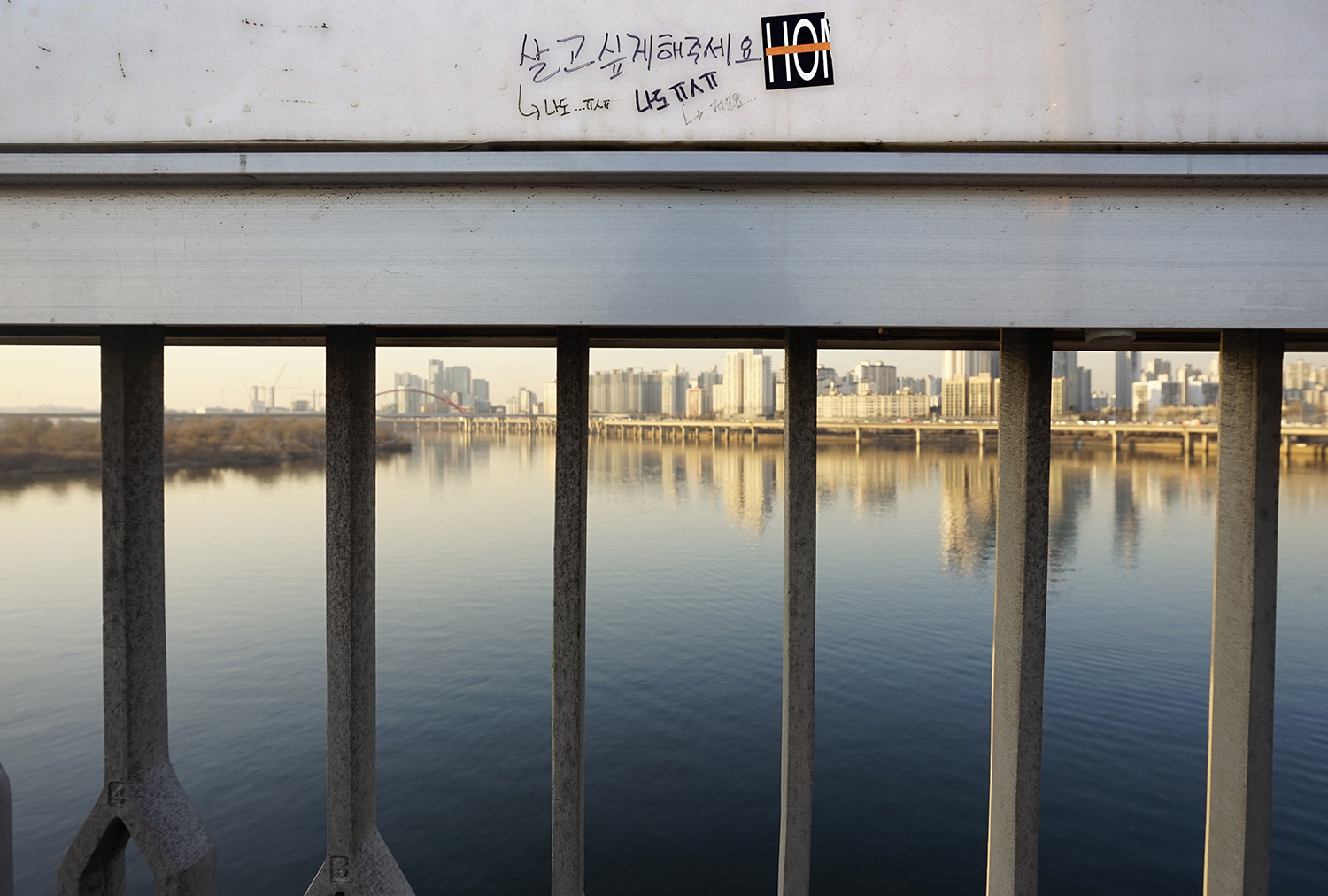
Last Wish, 2017, c-print (text: 'You took a trouble today also')
마포대교 위에는 정말 많은 사연들이 예상도 할 수 없는 위치에 적혀있다. 마치 각 사연들을 적은 사람들의 심정을 나타내는 위치에 있달까...
아슬아슬한 다리 난간아래에 "오늘하루 수고했어요"란 말은 위태로운 하루들을 말해주는 듯하다.
Where are the most desperate urges expressed in Korea? Mapo Bridge is known as a place where about 200 people each year take their own lives by jumping. Once intended to be a “bridge of life,” it has instead become a “bridge of death,” welcoming countless individuals in despair. Ironically, however, I also encounter those who are earnestly seeking hope. It seems that, when confronted with thoughts of death at the very site where they have left their desperation behind, people search for a deep, heartfelt hope for life within themselves. As E. Cioran once said, “My dream, which I had long forgotten, comes to mind at the end of desperation”—a sentiment that echoes the experiences of those who have lost hope after being defeated by harsh reality.
Many stories are inscribed in unexpected places on the Mapo Bridge. Each message occupies a spot that reflects the mental state of the person who wrote it.
The words “You made it through another tough day,” written discreetly beneath the bridge’s rail, seem to capture a critical moment in someone’s life.
▶ Mapo Bridge
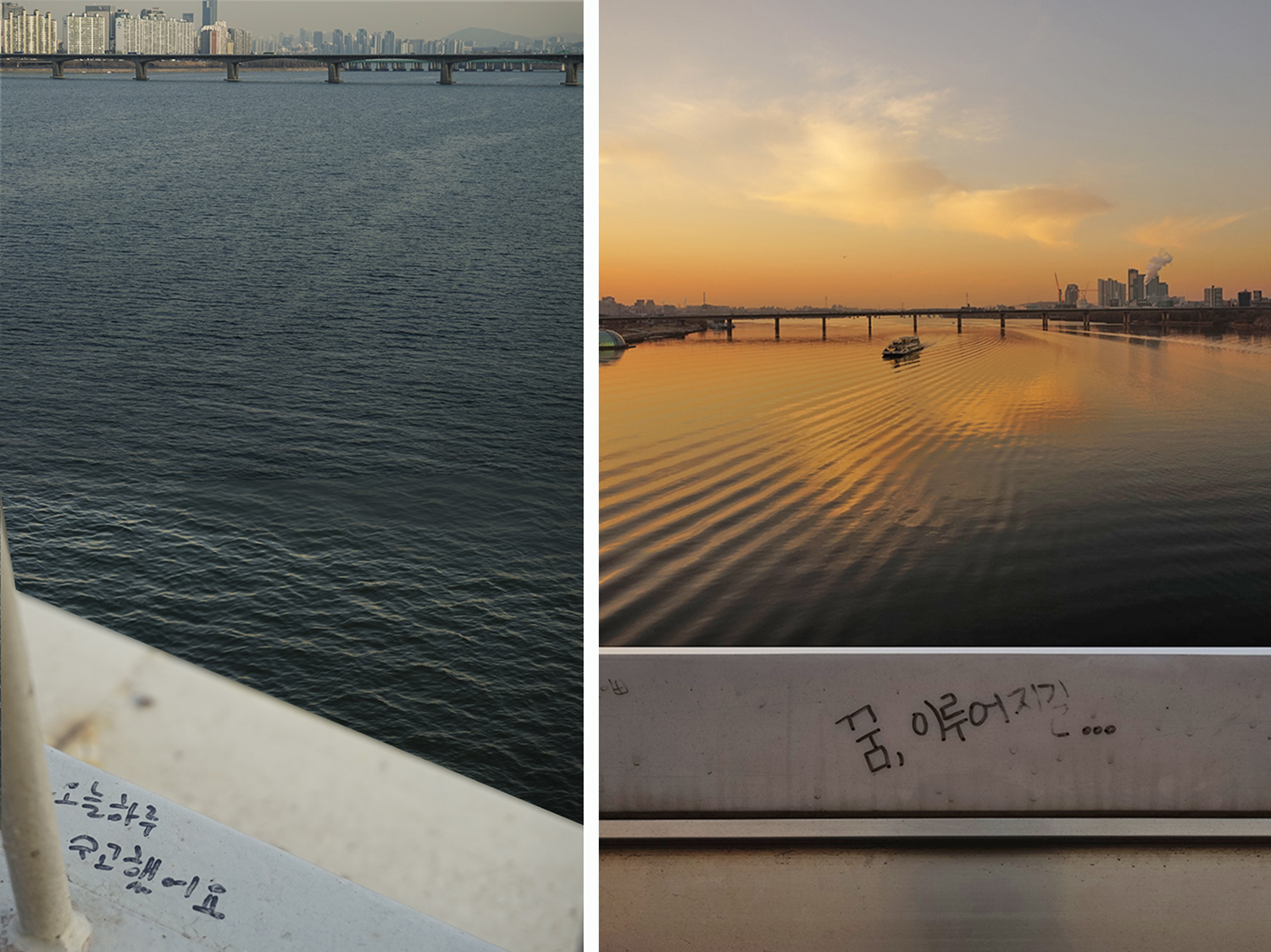
하늘 별세상 Paradise on Earth (2017~)
This project has been presented in two versions: Seoul (2017) and Sharjah (2023). more detail in the series. ▶
Paradise on Earth, 2023, mixed media: neon sign, aluminum plate, 200(h)x500cm, Sharjah Biennale 15 (UAE)
Neon sign design: Kim Min-jae
이 작업을 진행하는 내내 부끄러운 '우리'의 모습에 한없이 불편하고 그들에게 미안했다. 내가 아는 한 대한민국은 그 어느 사회보다 편견과 차별이 심한 사회이다. 인종, 종교, 성차별은 물론이고 출신과 학력 나이와 부모 심지어 생김새까지 나와는 다른 모든 것들에 색안경을 끼고 본다. 갈수록 어려워지는 계층 이동과 커져만 가는 소득격차, 그에 따르는 집단 이기주의가 팽배하다. 한국사회가 다문화 사회로 되어가는동안 자신과 다른 사람, 문화를 받아들이려는 마음은 넓어지기 보다 오히려 집단들은 이익을 지키기 위해 단결력을 높이고 있다. 부모 세대보다 가난한 첫 세대로 기록될 요즘의 청년들은 자본주의의 질서아래 철저히 등급이 매겨지는 중이며 살아남기 위해 더 높은 곳을 가기위함이 아니라 더 낮은 곳으로 가지 않기 위해 몸부림치고 있다.
소위 사람들이 말하는 나와는 다른 우리가 아닌 사람들... 정작 그들이 바라본 우리는 어떤 모습이었을까?
내가 만난 첫 대상자들은 남한에서 다문화집단으로 인식돼가는 북한이탈주민들이다. 탈북민들이 남한 사회에서 대한민국 국민이 되기 위해 겪어야 하는 어려움과 외국인노동자보다 못하다는 처지로 전락하여 차마 북에서 왔다는 사실을 숨겨야하는 침묵과 고통의 시간들을 보내고 있다. 나조차도 인식못했던 그들을 바라보는 남한 사람들의 불편한 시선들...
As far as I know, Korean society is plagued by prejudice and discrimination that are more serious than in many other societies. We often judge others who are different from us and things that differ from what we are familiar with—such as race, religion, gender, origin, academic background, age, parents, and even appearance. Social mobility is becoming more difficult, income disparities are growing, and collective selfishness is widespread. Although Korean society has shifted toward multiculturalism, we tend to unite more firmly for our own group’s interests rather than embracing others and different cultures with open minds. Korean youth, who are documented as the first generation to be poorer than their parents, are strictly evaluated according to capitalist standards, struggling not to fall further behind.
Those who are not considered part of “us” often ask: What do we look like to them?
The first people I encountered were North Korean defectors, who are regarded as a multicultural group in South Korea. They have faced even greater hardships and prejudice in becoming South Korean citizens than migrant workers have. Many have endured long periods of suffering, forced to hide their origins from North Korea. The hostility they face from South Koreans, and our uncomfortable stares…
Throughout this work, I have felt both discomfort and shame at our own attitudes, and deep SORRY for them.
More ▶
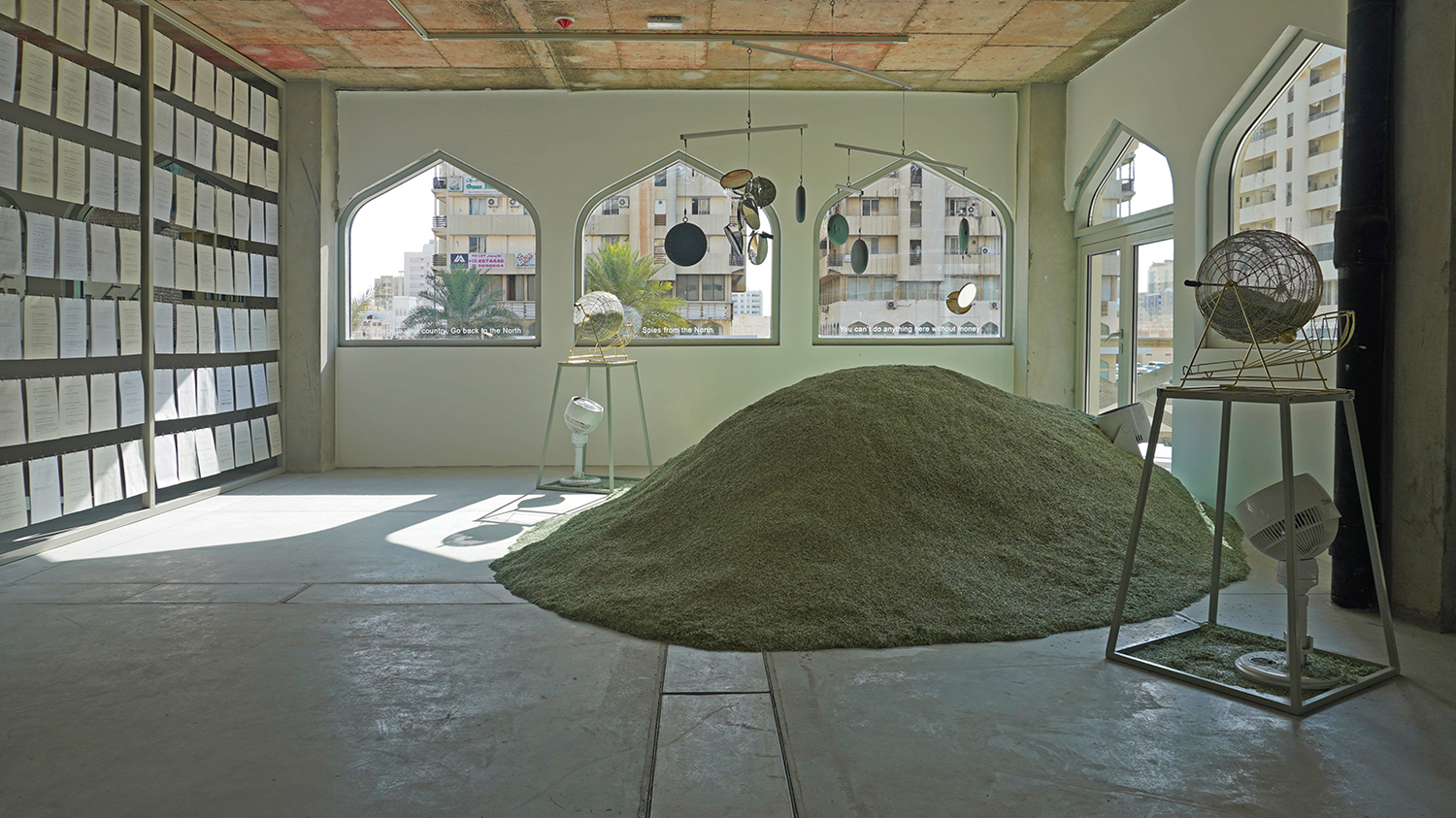
나라 없는 사람, 2023, 분쇄된 지폐(한국은행 제족), 블루투스 스피커, 모빌, fan, 수동 복권장치, 탈북민 설문지, 네온사인, 가변크기 Sharjah Biennale15
A Man Without a Country, 2023, Shredded Korean banknotes, sound, speakers, electric fans, mirrors, manual lottery machines, survey paper, neon sign, and hanging steel mobile, variable size,
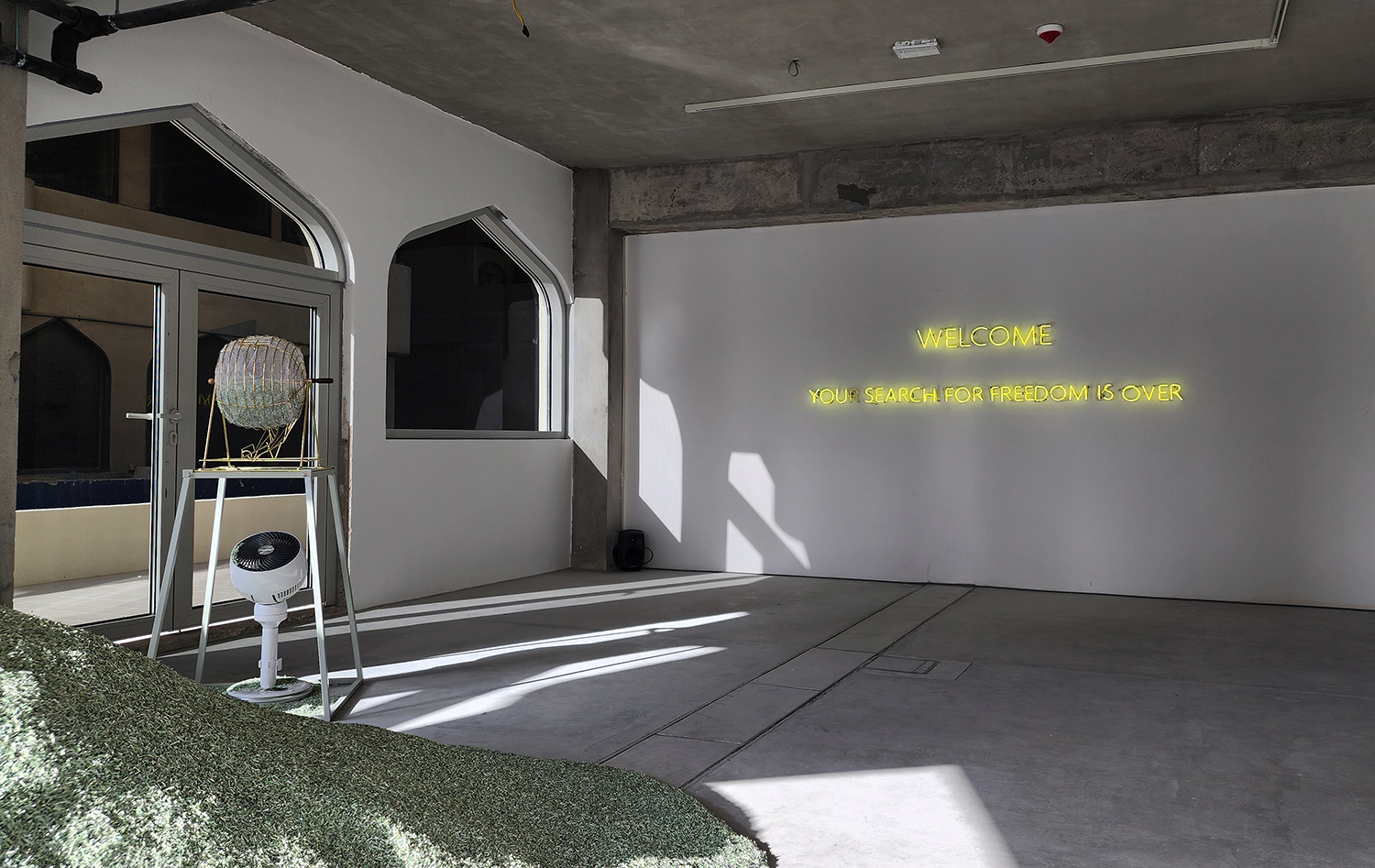
North Korean defectors escape North Korea and arrive in South Korea, usually via China, Laos, and Thailand. While passing through 2-3 countries like that, they did not receive a friendly message saying 'Welcome'.
An interview with a North Korean defector who answered that the formal 'Welcome' that he heard for the first time after arriving in South Korea was the most impressive word in the past 10 years left a deep impression on me.

A Man Without a Country Ver. 25, 2025
Six-channel sound, Bluetooth speakers, stainless steel, graffiti, searchlight, mirror, robot vacuum, loudspeaker, shredded Korean banknotes, various objects, mixing machine, survey paper, dimensions variable. Commissioned by the Gyeonggi Cultural Foundation in 2025
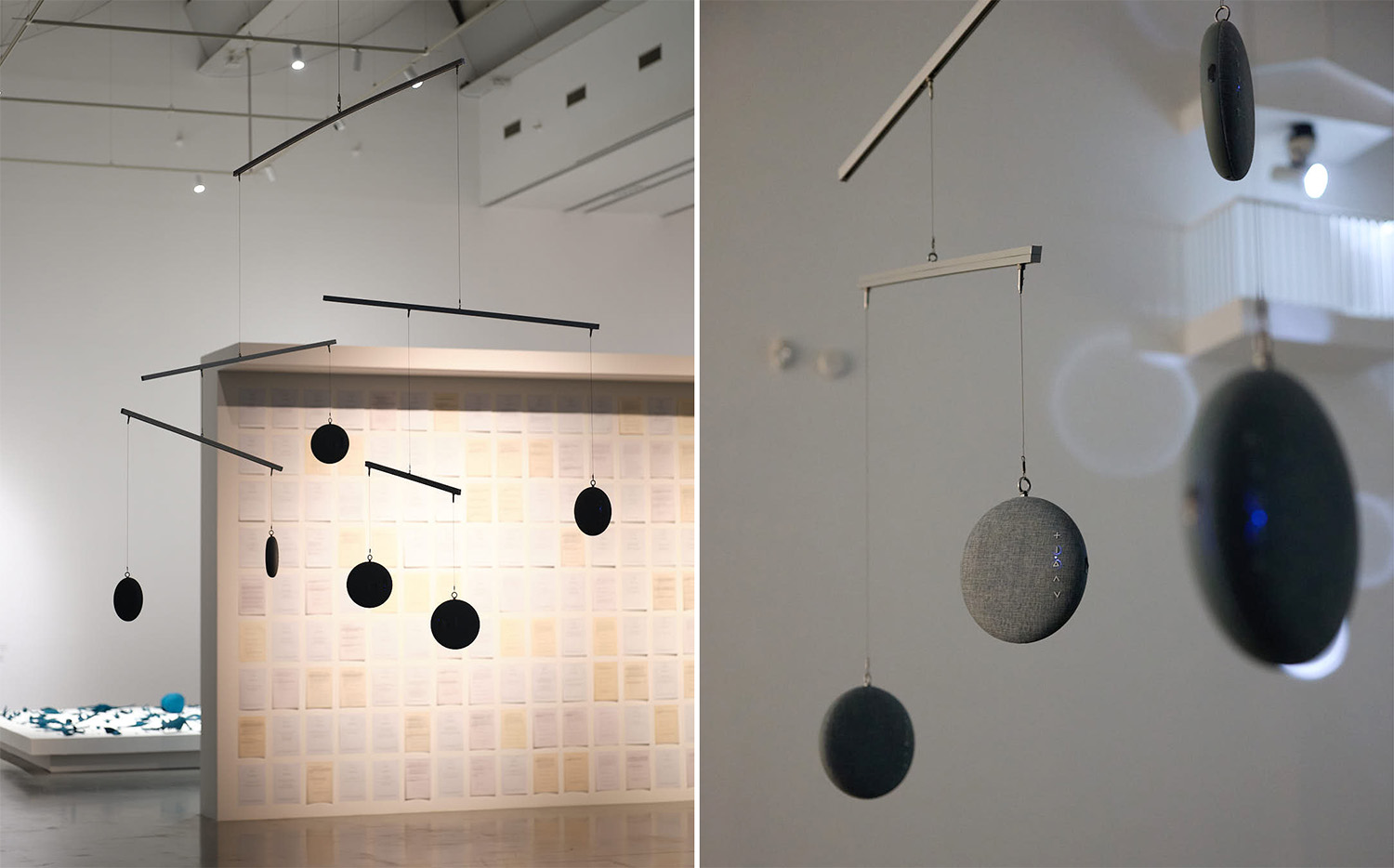
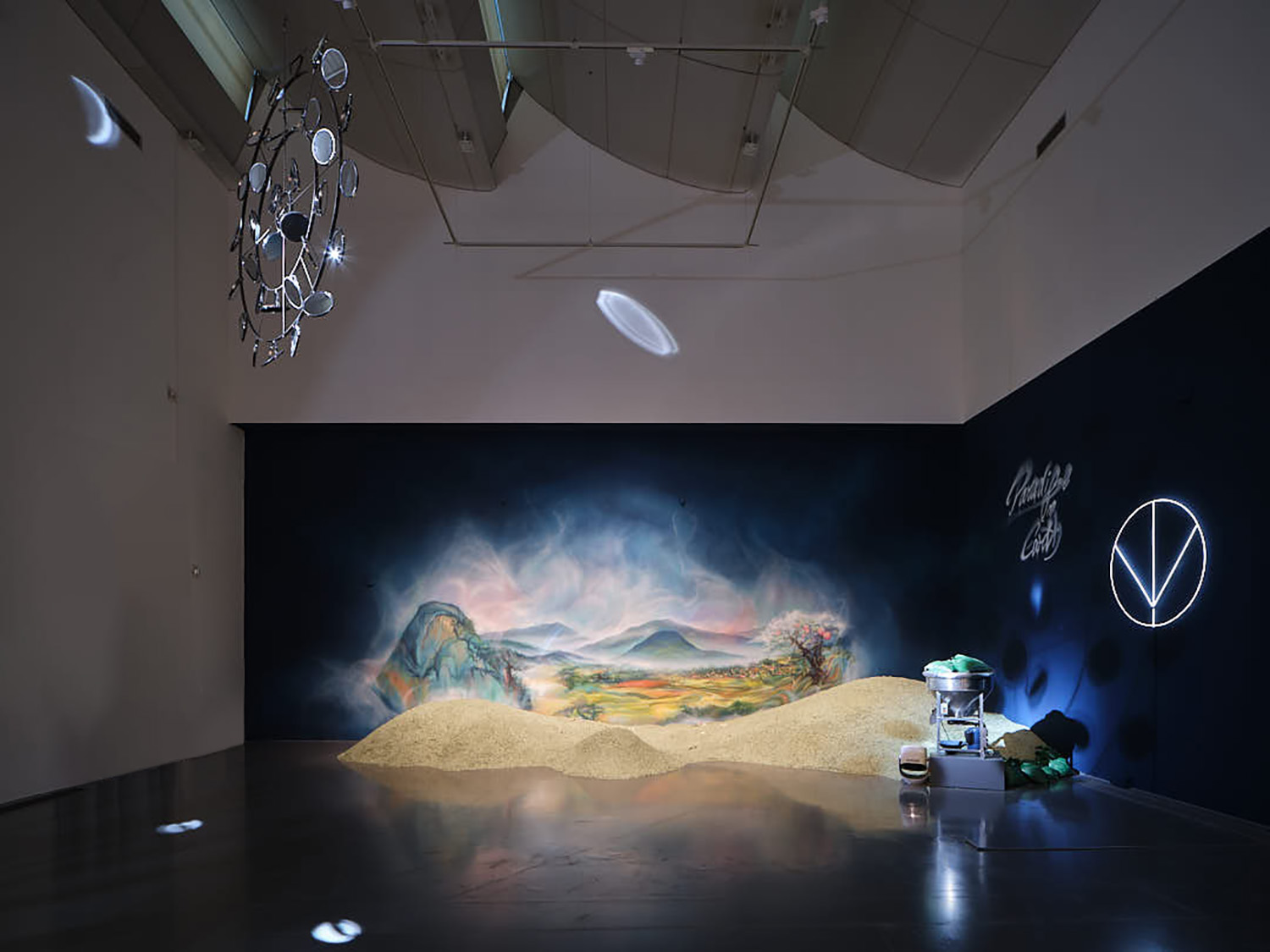
Paradise on Earth was first shown at SeMA in 2017, then developed and presented at Sharjah Biennale(2023, UAE) and GMoMA(2025, KR)
Please refer to Series ▶
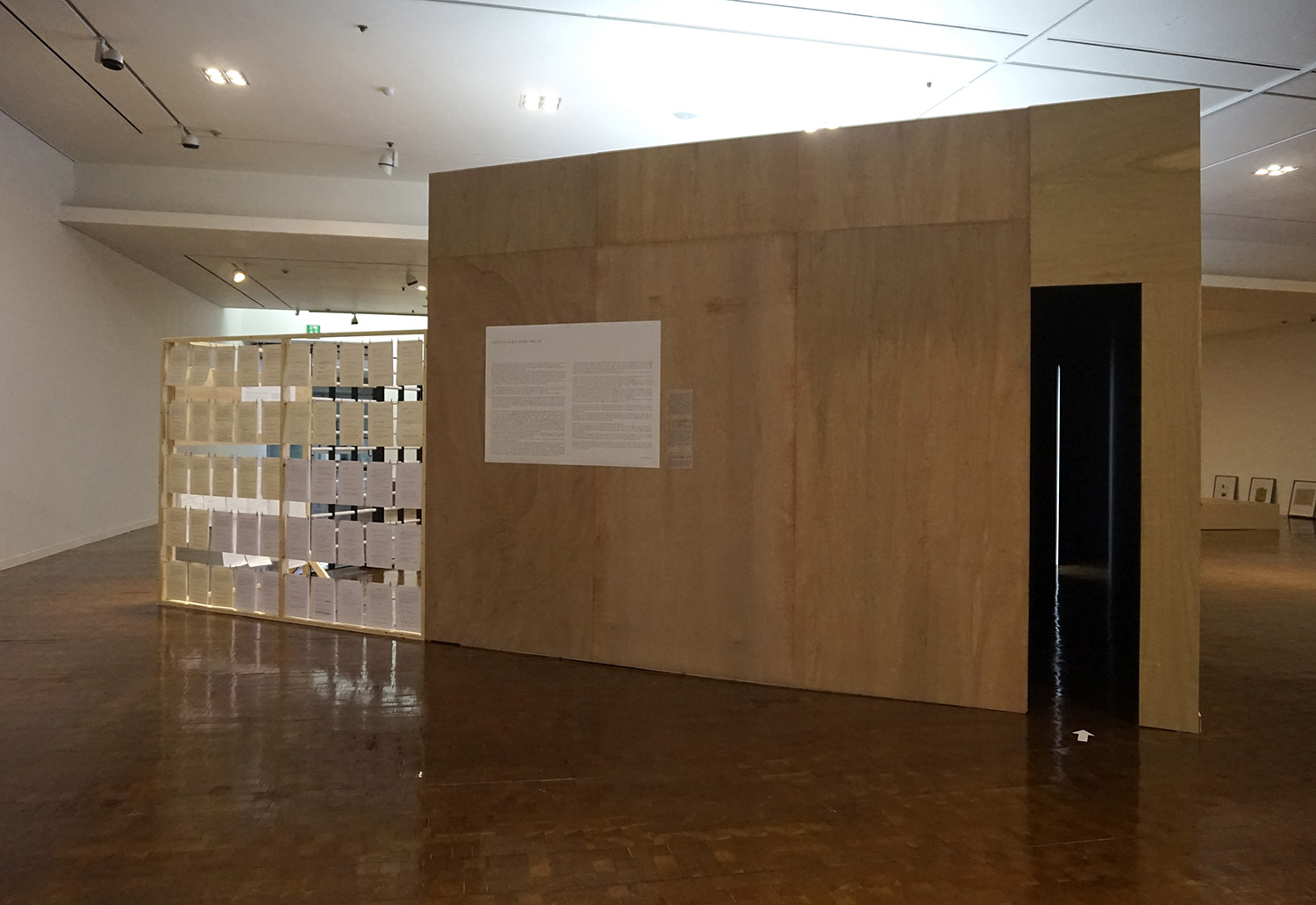
하늘별세상, 2017, 스피커, 망에 UV프린트, 탈북민 설문, 조명, 혼합매체, 가변크기, 서울시립미술관 커미션
Paradise on Earth, 2017, sound (broadcast to North Korea in DMZ), speaker, UV print on mesh, light, SeMA Commission
Propaganda broadcasts to North Korea are heard in a dark, narrow passageway measuring 50cm wide, signifying the process of defecting from North Korea.
Survey: A South of vanishing hope vs. a North of scant freedom: Who is unhappier?
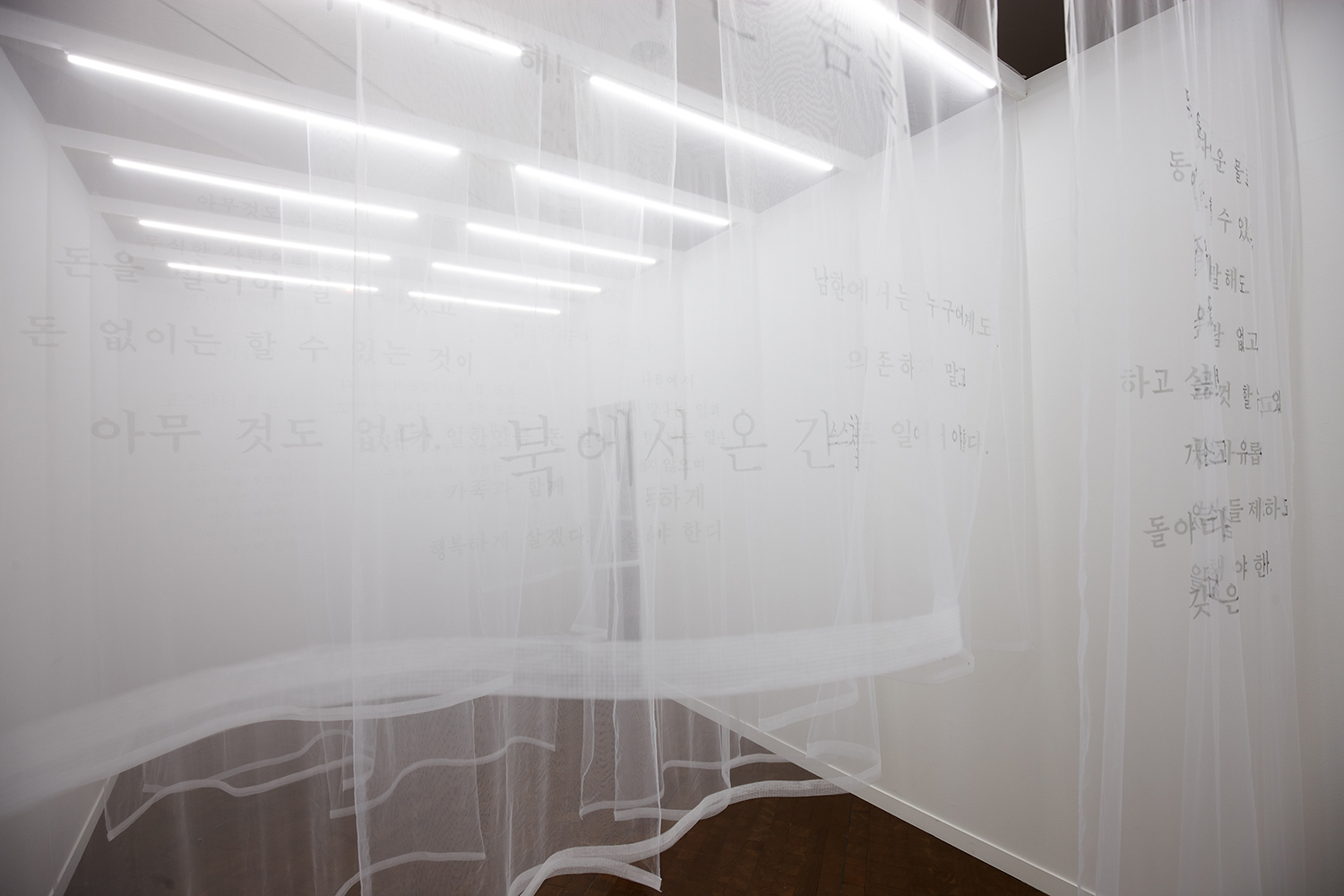
A Forest of Prejudice, 2017, UV print on the lace, light, Variable dimensions
(text: North Korean defectors' answer about the survey question "A South of vanishing hope vs. a North of scant freedom: Who is unhappier?")
Passing through a narrow, dark passageway, a brightly lit white space appears. At first glance, it looks like a world of light, but as people pass through, repulsive words appear behind them.
